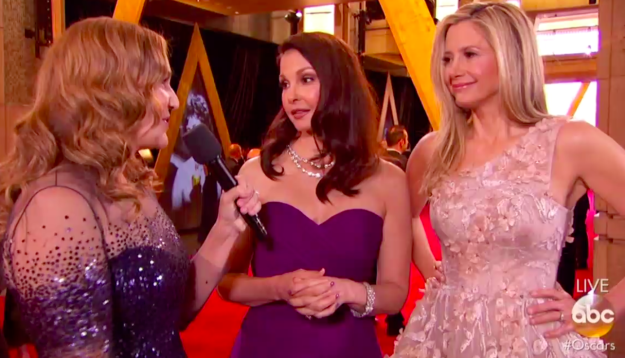
Compared to the Golden Globes, the Oscars took a more…relaxed approach to the fight against sexual misconduct in Hollywood.
Though the main narrative of this year’s Golden Globes was centered on the #MeToo and Time’s Up movements, this year’s Oscars focused much more on, well, the movies and the people who made them. Except for an impassioned speech by Frances McDormand that called on all the female nominees of the night to stand up — and told everyone in Hollywood to demand an “inclusion rider” — not many of the speeches made political turns. And whereas Time’s Up made big shows on the red carpets of the Golden Globes, Grammys, and BAFTAs, there was no major show of solidarity planned for Hollywood’s biggest event of the year.
Overall, Hollywood let the Oscars go by with a palpable shortage of reference to one of the industry’s biggest issues.
Here’s what they did do:
Ashley Judd and Mira Sorvino talked about the #MeToo movement on the ABC red carpet.

“I want people to know that this movement isn’t stopping. We’re going to forward until we have an equitable and safe world for women,” Sorvino said. “I have been supporting legislation in California for equal rights advocates. There is a #takethelead, and you can sign their petition, and it’s the strongest sweep of bills anywhere in the country, and so we want to take our activism and our power into action and change things for every woman everywhere working in every workplace.”
Judd also talked about her accusation against Harvey Weinstein, noting that she’d been sharing her story since 1997.
“What’s so spectacular in this moment is the world is able to hear,” she said. “We want our women’s voices who have been squelched, and the people that come forward, they are shamed and we want to put that shame where it belongs, which is with the perpetrator and us being the phoenixes who can light the way, as Mira said, not only within Hollywood, but for safe and equitable resources.”
She also mentioned the Time’s Up legal defense fund, which has raised over $21 million since it was launched in January.
ABC
Jimmy Kimmel’s monologue included the show’s most overt discussion of the fight to stop sexual misconduct in the industry.
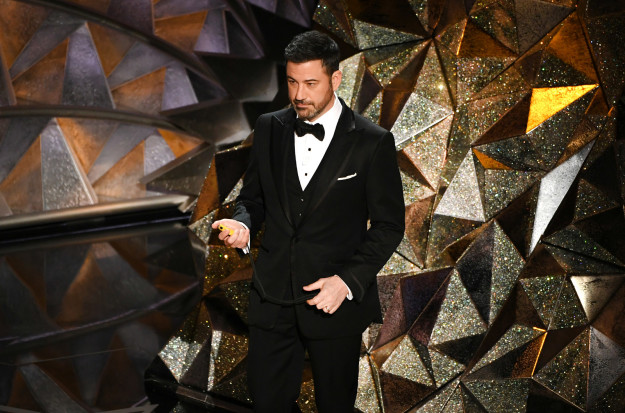
Kimmel did not shy away from #MeToo or Time’s Up during his opening monologue, spending a significant amount of time addressing the discussions of sexual misconduct that have taken center stage in Hollywood since Oct. 2017. That ranged from the usual monologue jokes (“Here’s how clueless Hollywood is about women,” Kimmel said, “they made a movie called What Women Want and it literally starred Mel Gibson.”) to more earnest dedications to a better Hollywood.
“We can’t let bad behavior slide anymore,” Kimmel said. “The world is watching us. We need to set an example. And the truth is, if we are successful here, if we can work together to stop sexual harassment in the workplace, if we can do that, women will only have to deal with harassment all the time at every other place they go.”
“Over the course of this evening, I hope you will listen to many brave and outspoken supporters of movements like me too and time’s up and never again, because what they’re doing is important,” he continued. “Things are changing for the better, they’re making sure of that. It is positive change.”
Kevin Winter / Getty Images
A few people wore Time’s Up pins.
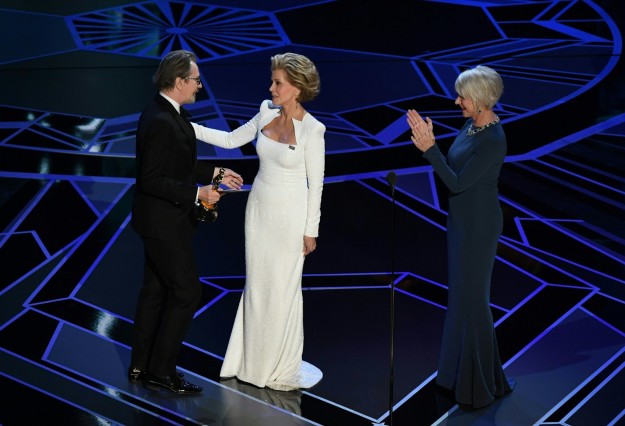
Celebs like Jane Fonda, Richard Jenkins, and Sam Rockwell wore Time’s Up pins as a subtle, non-verbal shoutout to the movement. Above you can see Fonda congratulating Gary Oldman for his Best Actor win while wearing one of the pins.
Kevork Djansezian / Getty Images
Common and Andra Day’s performance included a cameo by Tarana Burke, founder of the #MeToo movement.
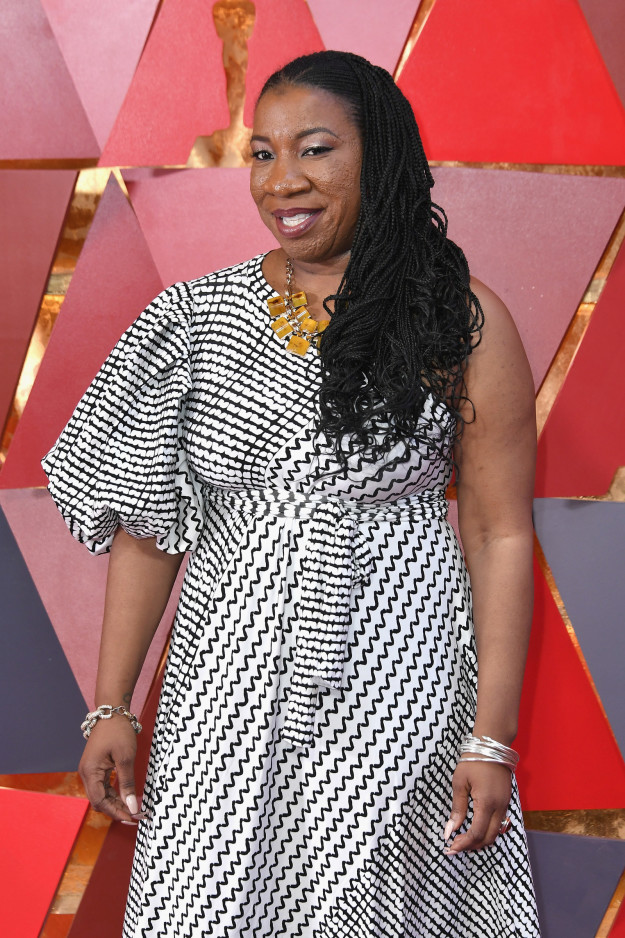
As Common and Andra Day performed “Stand Up for Something,” several activists took the stage behind them, including #MeToo founder Tarana Burke. The others up there were Janet Mock, Alice Brown Otter, Bana Alabed, Bryan Stevenson, Cecile Richards, Dolores Huerta, José Andrés, Nicole Hockley, and Patrisse Cullors.
Neilson Barnard / Getty Images
Salma Hayek, Anabella Sciorra, and Judd took the stage to present a tribute to equality and inclusion.
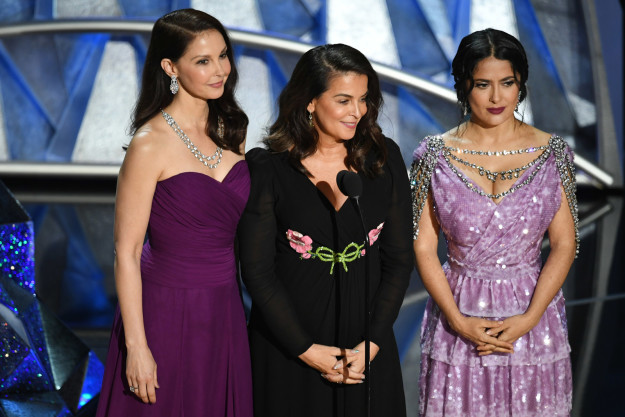
All three of them have accused producer Harvey Weinstein of harassment or assault.
“This year, many spoke their truth and the journey ahead is long, but slowly, a new path has emerged,” Sciorra said.
Then Judd spoke, saying that “the changes we are witnessing are being driven by the powerful sound of new voices, of different voices, of our voices, joining together in a mighty chorus that is finally saying time’s up.”
“So we salute those unstoppable spirits who kicked ass and broke through the biased perception against their gender, their race, and ethnicity to sell their stories,” Hayek said before a video played with several Hollywood creators discussing the importance of diversity and representation.
Kevin Winter / Getty Images

